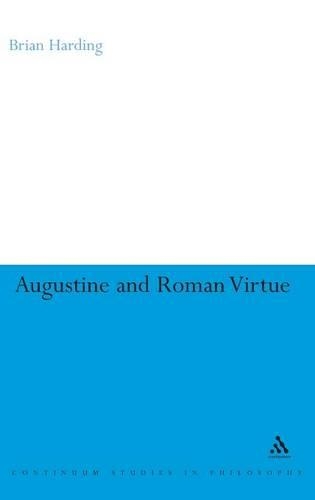
Augustine and Roman Virtue
(Hardback)
Available Formats
Publishing Details
Augustine and Roman Virtue
By (Author) Dr Brian Harding
Bloomsbury Publishing PLC
Continuum International Publishing Group Ltd.
1st September 2008
United Kingdom
Classifications
Tertiary Education
Non Fiction
179.9092
Physical Properties
Hardback
220
Width 156mm, Height 234mm
Description
Augustine and Roman Virtue seeks to correct what the author sees as a fundamental misapprehension in medieval thought, a misapprehension that fuels further problems and misunderstandings in the historiography of philosophy.
This misapprehension is the assumption that the development of certain themes associated with medieval philosophy is due, primarily if not exclusively, to extra-philosophical religious commitments rather than philosophical argumentation, referred to here as the sacralization thesis'.
Brian Harding explores this problem through a detailed reading of Augustine's City of God as understood in a Latin context, that is, in dialogue with Latin writers such as Cicero, Livy, Sallust and Seneca. The book seeks to revise a common reading of Augustine's critique of ancient virtue by focusing on that dialogue, while showing that his attitude towards those authors is more sympathetic, and more critical, than one might expect. Harding argues that the criticisms rest on sympathy and that Augustine's critique of ancient virtue thinks through and develops certain trends noticeable in the major figures of Latin philosophy.
Reviews
'Augustine's criticisms in City of God of antique conceptions of virtue and happiness are well known, but it has remained doggedly unclear whether those criticisms are essentially philosophical in nature or the imposition of an alien theology on philosophical business. There is no better treatment of the issue in the literature than Brian Harding's patient analysis.' James Wetzel, Villanova University, USA
Mention -Book News, February 2009
Mention -Chronicle of Higher Education, February 13, 2009
"Harding's work uses well known material from The City of God to make an original and important point." The Philosophical Quarterly
Author Bio
Brian Harding is Professor of Philosophy at Texas Women's University, USA. He is author of Not Even a God can Save us Now: Reading Machiavelli after Heidegger (2017) and co-editor with Michael R. Kelly of Early Phenomenology: Metaphysics, Ethics and the Philosophy of Religion (Bloomsbury, 2016).
